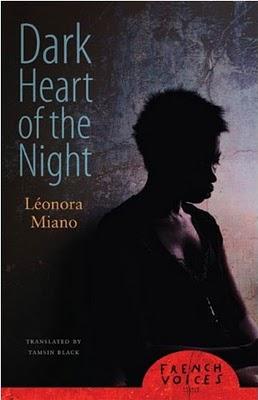Dark Heart of the Night

The gross reality of genocide brings one’s spirit to feel a deep sadness for groups and individuals who don't understand different cultures. Delineating a brutal world of power and defeat, the author of Dark Heart of the Night doesn't hold back and the shocking truth of this topic engenders an incredulous curiosity in the reader: how can a village not support their people, even those who are related to some in the village? How can the world be so out of kilter that more energy is spent killing while refusing to understand others? The power of violence resonates throughout and accompanies the overriding story.
The author depicts the harshness and pain of this specific village to help us understand the ongoing brutality of a small tribe of people. In reading Dark Heart of the Night, a person may see parallels to oppressed groups through history. The sheer stubbornness and defiant attitudes of particular individuals in the village overpower the mass of followers in the village.
Nightmarish in its intensity, the novel opens with the brutal acts of a rebel force taking place within the country. As readers, we observe protagonist Ayané, who returns to her Central African village from France to assist her dying mother; she is continually an outcast—not understood nor understanding this culture to which she returns uneasily. As a more "worldly" individual, she confronts the local leader of the village after witnessing killing in her mother's village from afar.
Throughout Dark Heart of the Night, the author depicts an ongoing conflict within the self, among others, and in the overall world. Her stark imagery brings to light gruesome and harsh experiences. Deftly utilizing only minimal words, Leonora Miano shapes the storyline with the sheer power of her writing. She elaborates on the human aspects of communication and being misunderstood in a cross-cultural situation. All character interactions bring ideas of human survival to the forefront.
Miano is originally from Cameroon, and she lives in France. Both Tamsin Black and Terese Svodboda translate Miano’s work into English for their readers. Overall, Miano presents a hearty and challenging novel to surely move the reader to action to demand fairness for those people who find themselves under the proverbial oppression of misplaced power.